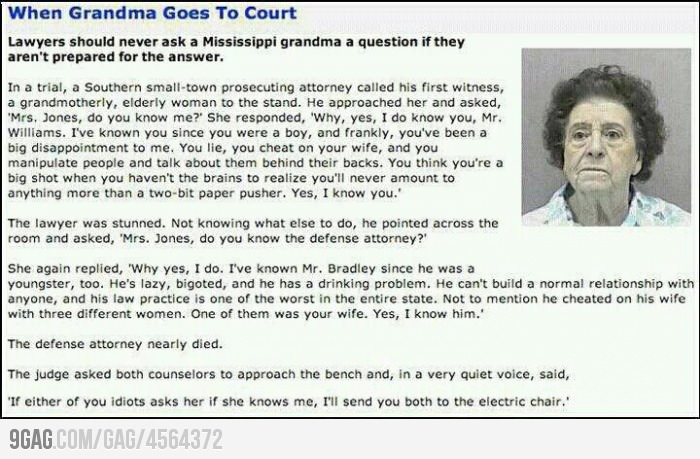The Law of Double Jeopardy
Nor shall any person be subject for the same offense to be twice put in jeopardy of life or limb.
First, double jeopardy only applies if the defendant was either convicted (found guilty) or acquitted (found not guilty) after the first trial.
Second, it must be the same sovereign that is trying the defendant both times. Each government entity is a separate sovereign. The federal government is separate from the states, and each state is a separate sovereign from the others. Also a Native American tribal government is separate from the federal government and states.
A true crime example of this was shown during the trials of the LAPD Officers who were accused of beating Rodney King. The four officers were initially charged by the state of California (through the Los Angeles County District Attorney's Office). They were acquitted of the charges in state court. The acquittals sparked the L.A. Riots. The federal government then charged the four officers with civil rights violations based on the same incident. This was not precluded by the Double Jeopardy Clause because the California and the federal government are two separate sovereigns.
The third requirement of double jeopardy is that the crimes charged in the first and second trials must be for the same offenses. This is determined by the same elements test. The elements of the crimes charged in the first and second cases are compared. If there is an element that must be proven in each crime that is different from the other, than the crimes are not considered the same, and double jeopardy does not apply.
Double Jeopardy the Movie
In the movie "Double Jeopardy," a married couple spend a weekend sailing. The wife, Libby (Ashley Judd), wakes up to find blood all over herself and the boat. Her husband, Nick, is missing. She arrested when the coast guard spots her holding a bloody knife, which she found on the deck.
Libby is convicted of Nick's murder. Her best friend agrees to care for her four-year-old son while Libby is in prison. While on the phone with her son, Libby hears a door open in the background, and her son yells, "Daddy." The phone disconnects.
Libby suspects Nick faked his death and framed her for murder. Another inmate advises Libby that when she was paroled, she could kill Nick with impunity because she had already been convicted of his murder, and the Double Jeopardy Clause would prevent her from being charged again. Libby does just that. (Tommy Lee Jones plays Libby's parole officer who at first investigates her violations of parole, then helps her once he realizes her story may be true.)
Lesson number one: Never take legal advice from a fellow prison inmate - or a movie - without first checking with a lawyer.
Libby's fellow inmate, and this movie, get the concept of double jeopardy wrong. If someone is wrongly convicted of murder, they do not then have free license to kill that person if the person is found alive.
Although both charged crimes are for the murder of Nick, they are two separate incidents. The dates, facts, and evidence supporting each charge would be completely different. Therefore, the charges are not for the same offense.
Also, in the movie, the first framed murder occurred in Washington state. The second murder occurred in Louisiana. Therefore, double jeopardy would not bar the second prosecution because the two states are not the same sovereign.
Because she was falsely convicted the first time, she could probably sue and recover some money to compensate her for her time in prison, but she would not be able to use that first conviction as a defense for her the second (valid) charges.
Check out the movie by clicking below:







































 RSS Feed
RSS Feed
